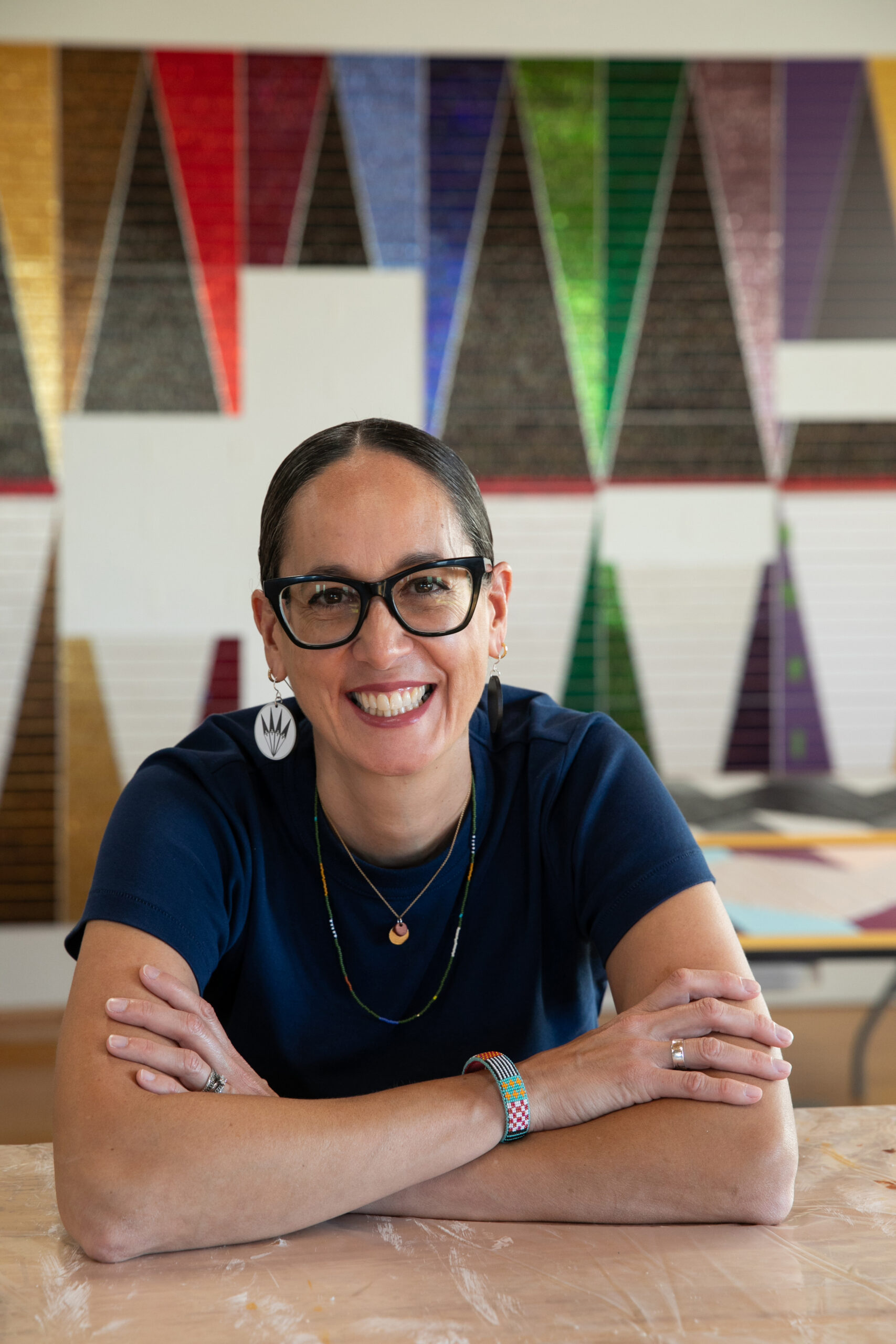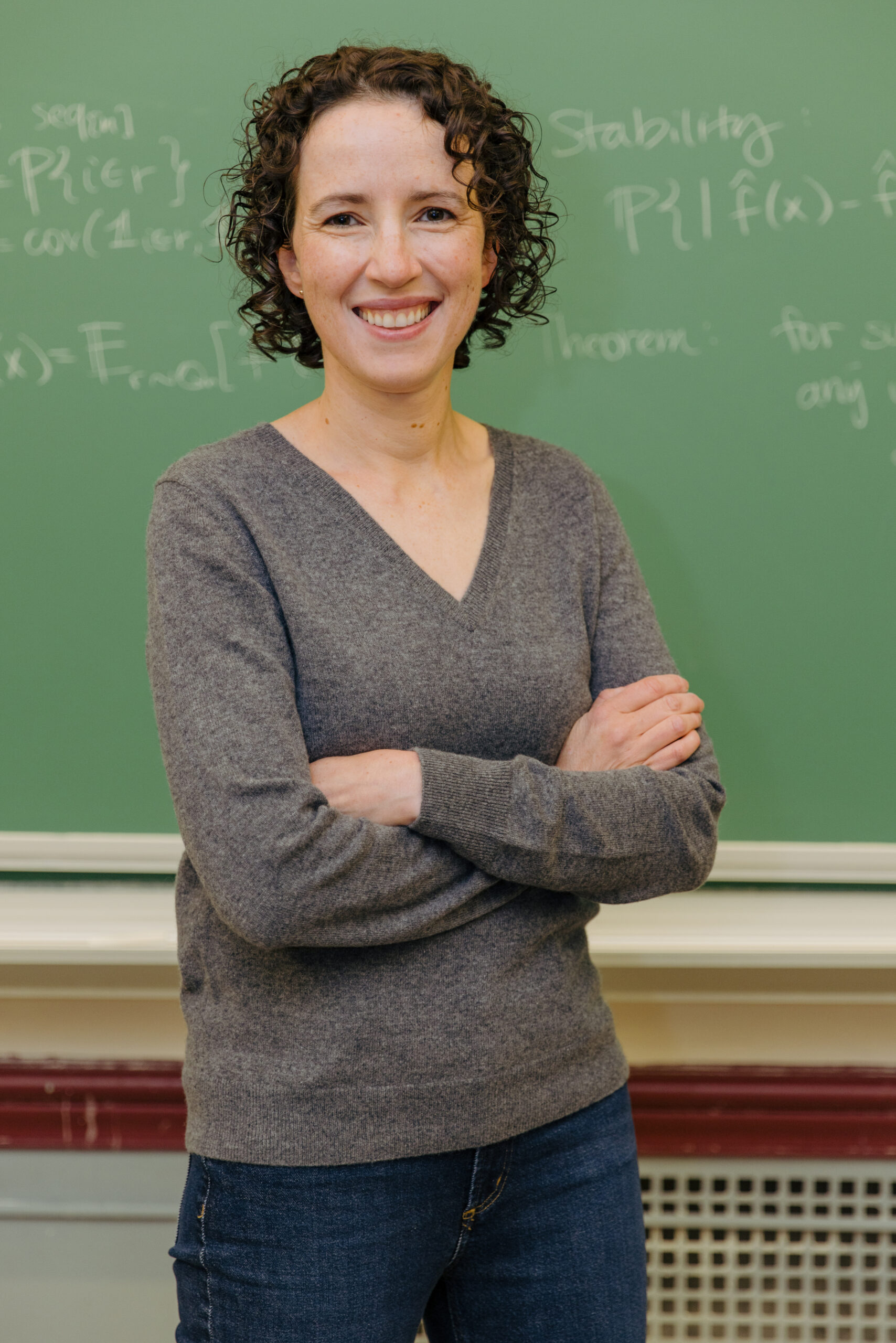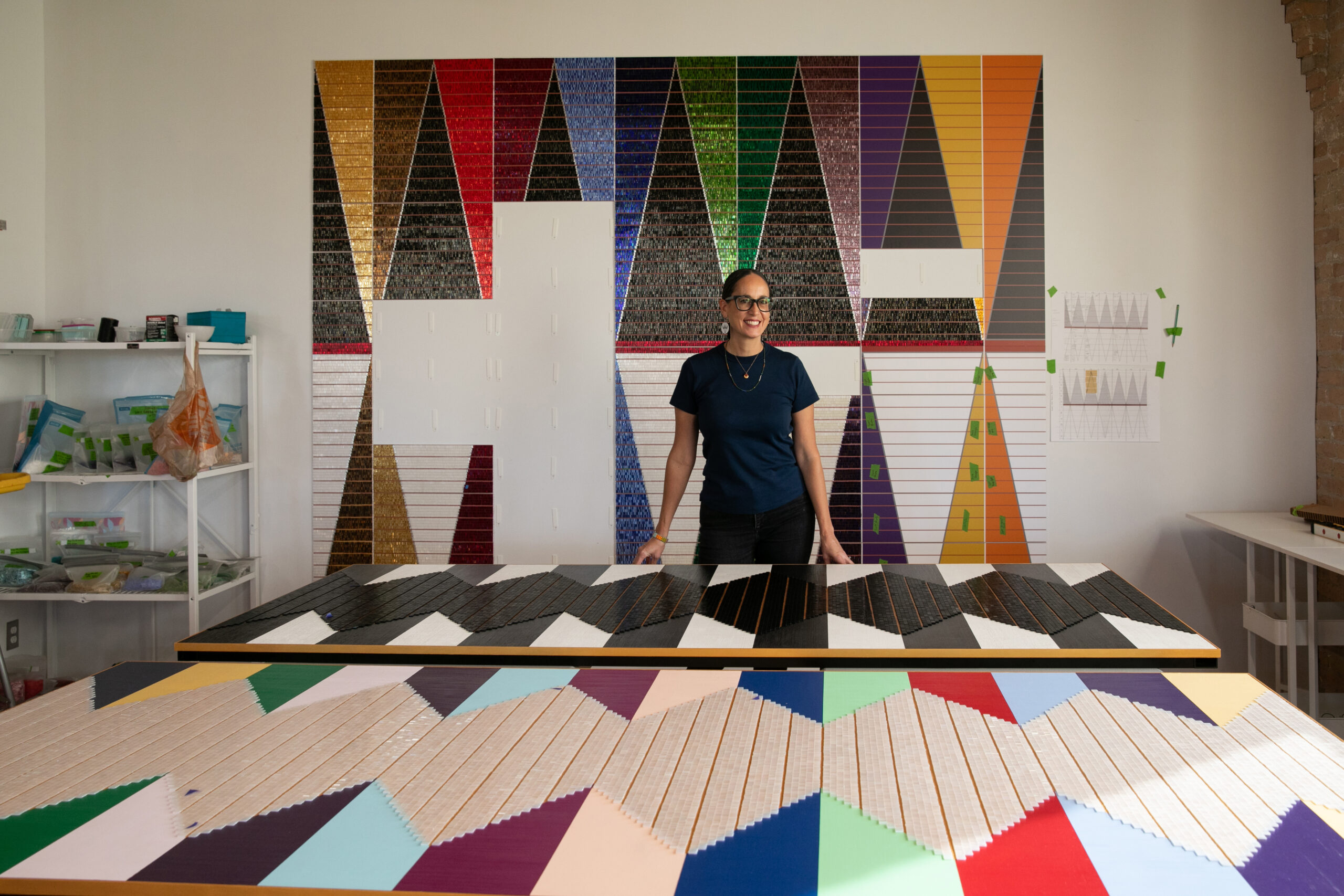Multidisciplinary artist Dyani White Hawk (Sičáŋǧu Lakota) from Shakopee, Minnesota, and statistician Rina Foygel Barber from Chicago, Illinois, have been awarded the prestigious MacArthur Fellowship.
Known as the “genius” award, the MacArthur Foundation recognized 20 individuals this year for their exceptional creativity; promise for important future advances based on a track record of significant accomplishments; and potential for the fellowship to facilitate subsequent creative work. Each fellowship comes with a “no strings attached” stipend of $800,000 to the recipient, paid out over five years.
The MacArthur Foundation states on its website that “the purpose of the MacArthur Fellows Program is to enable recipients to exercise their own creative instincts for the benefit of human society.” It is not meant to be a lifetime achievement award, “but rather an investment in a person’s originality, insight, and potential.” Since 1981, the foundation has recognized 1,131 people with this distinction—following an intentional and rigorous nomination review process for this unique award.
MACARTHUR FOUNDATION“Creativity comprises the drive and ability to make something new or to connect the seemingly unconnected in significant ways so as to enrich our understanding of ourselves, our communities, the world, and the universe that we inhabit.”

Dyani White Hawk
“I hope that people walk away from my work thinking about how our history has impacted Indigenous communities, thinking about our relatedness. Thinking about our interconnectivity. Thinking a little deeper about how our lives are connected across the globe,” said White Hawk in her interview with the MacArthur Foundation.
The artist’s studio practice spans painting and beadwork, “revealing the underrecognized yet enduring influence of Indigenous aesthetics on modern and contemporary art.” Centering on the ideas of connectedness, White Hawk, who is Sičáŋǧu Lakota, often collaborates with crews of intergenerational Native artists and traditional craft practitioners to make her large-scale works.
For the 2022 Whitney Biennial, she created Wopila | Lineage, using traditional Native American porcupine quillwork and beadwork resulting in a mesmerizing large painting-like work with Lakota motifs. One that communicates and transforms with proximity and inspection.
“European and European American histories have created a hierarchy that has lifted up certain art forms, certain people, certain communities, and devalued others,” she said. “These conversations in my work push back against those hierarchies, ask us to think critically about how we tell our histories (and) what parts of our artistic history on this continent have been excluded.”
MACARTHUR FOUNDATION“Creativity can take many forms: asking questions that open onto fields of inquiry as yet unexplored; developing innovative solutions to perplexing problems; inventing novel methods, tools, or art forms; fusing ideas from different disciplines into wholly new constructions; producing works that broaden the horizons of the imagination.”

Rina Foygel Barber
“Algorithms and models and machine learning tools are using data that’s at a larger scale than ever before, and that leads to great results. But it also creates a scenario where it’s very hard for us to know exactly what’s reliable, what’s happening under the hood,” said Barber in her MacArthur Fellows interview. With the tremendous growth in machine learning and algorithmic systems, her field of research touches our everyday lives and grows in relevance with almost every interaction.
Barber, a professor at the Department of Statistics at the University of Chicago, is designing new methods for working with massive and multidimensional datasets. Her research focuses on “reducing false discovery rates and cross-validating machine learning prediction models.”
“The questions I look at are things like what types of assumptions are we making and what can go wrong?” she said. According to the MacArthur Foundation, Barber’s findings are applicable to scientific research in a range of fields, such as healthcare, genomics, climate science, astronomical imaging, and the social sciences.
“So, I think what’s really interesting and impactful about theory is that it’s beautiful for its own sake, but at the same time, it can also inform us in surprising ways about what it is that we do in practice,” said Barber.
